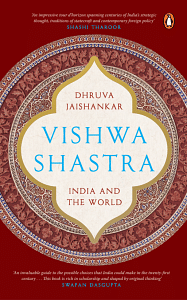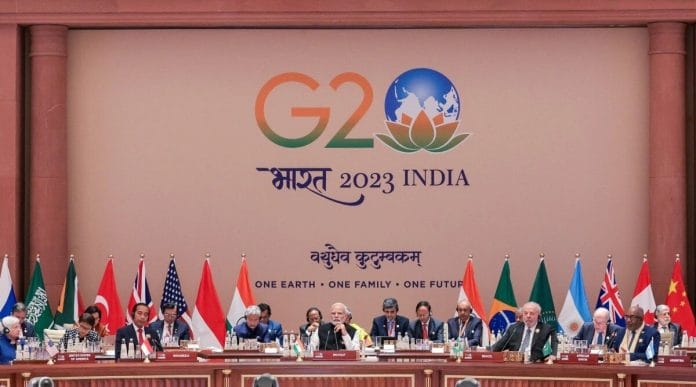In past eras, major conflicts such as world wars have represented opportunities to reset the institutions that represent the international order. For example, the Concert of Europe came out of the Napoleonic Wars, the League of Nations developed after World War I, and the United Nations after World War II.
While fortunately the Cold War ended peacefully, there was no such opportunity to reset the fundamental terms of the international order. As such, the United Nations system and other international institutions have preserved, becoming increasingly outdated.
For all its limitations, the United Nations remains important. The UN General Assembly (UNGA) is by far the most representative international institution and thus an important forum for global discussions. In addition, it is also the basis for various economic and social agencies, the UNFCCC, and agreements such as the UN Convention on the Law of the Sea.
But making the governance structures more representative and thus more effective ultimately requires UNSC reform. The UNSC features five permanent veto-wielding members—the United States, Russia, China, United Kingdom and France (or P-5)—representing the victors of World War II and their successor entities.
To this end, India has been consistently advocating for its own permanent membership in the UNSC as well as better representation overall for other countries, including those of the Global South. There are past precedents for UNSC reform, including the addition of non-permanent members in the 1960s as well as expansion of the UN Economic and Social Council.
India has been part of the G-4 (along with Germany, Japan and Brazil) advocating for their group’s permanent membership, as well as two more permanent members from Africa. This might initially involve membership for India without a veto, subject to a later review following a specific timeframe. India is also part of a group within the UN called the L.69 Group, involving mostly developing states, which has advocated for more radical reform.
But such efforts have faced resistance from many quarters. A group called United for Consensus (or informally the Coffee Club) includes Pakistan and resists expansion of permanent membership. The Africa Group at the UN remains hesitant about proposing how it would fill its seats should expansion of permanent members take place.
Although four of P-5 have agreed in principle to new permanent and non-permanent members (while doing little to facilitate the process), China alone has not voiced support. Ironically, the greatest obstacle to better representation for Asia and the Global South at the UNSC comes from its sole Asian member. For all these reasons, the formal negotiations over the UNSC reform have stalled since 2015, with little movement on details, timeframes or record of proceedings.
Also read: Nehru wanted India to develop a scientific temper. Today’s leaders are doing the opposite
India will have to continue advocating for representation and hold the process more to account, including by building the coalition for reform. Various compromises by the numerous negotiating parties might well be necessary, such as on geographical representation or the veto. But a formula could theoretically be worked out that would make the UNSC—and by extension UN governance—more representative and effective.
An absence of such movement risks making the UN more irrelevant and unable to fulfil the obligation of its charter to shield future generations from the prospect of devastating war, ensure respect for treaties and international commitments, and promote social progress and human dignity. Not making the UN representative of the world of the twenty-first century would also grant more legitimacy to non-UN bodies, whether regional groupings or institutions such as the G-20.
The UN system is not the only multilateral body in dire need of reform, from India’s standpoint. The United States and Europe have been reluctant to cede voting and other powers at the IMF and World Bank. While India sought alternatives to these bodies, it has also tried to use its G-20 presidency to reinvigorate the World Bank, in particular. By broadening that institution’s mandate and enabling greater public–private financing potential, India has tried to support the World Bank’s transition into a more effective body to achieve the development, technological, and sustainability objectives now needed.
India has been an active participant in the G-20 and tried to take the most advantage of its presidency in 2022–23 to ensure consensus among the world’s leading economies on political and development issues. It also tried to highlight the value of digital public infrastructure and sustainable development, along with institutional reform. By working in the troika format, with the preceding and succeeding presidencies of Indonesia and Brazil, India has tried to embed these objectives as part of long term efforts.
In addition, India has been a frequent participant (although not a member) of G-7 discussions and at the Organisation for Economic Co-operation and Development. While these groups represent advanced economies, India has worked with the latter in particular on artificial intelligence (through the Global Partnership on Artificial Intelligence) and energy (by engaging with the International Energy Agency). Separately, India has also coordinated with the Club of Paris—a group of which it is not a member—on lending standards as a creditor.
There are also older entities related to export controls and weapons of mass destruction. Although India is unlikely to sign the Nuclear Non-Proliferation Treaty (NPT) except as a recognized nuclear weapon state, it has largely adhered to its principles. India is now a full member of most major export control regimes but will have to continue advocating for membership of the Nuclear Suppliers Group (NSG), which has been resisted by China.
Finally, there is an opportunity for India to take a bigger leadership role at two legacy institutions: the Non-Aligned Movement (NAM) and the Commonwealth. Although their purpose and utility are increasingly in question, India now presents the largest economy in both organizations. This presents it with an opportunity to repurpose these groupings to make them more relevant to the present day.

This excerpt from ‘Vishwa Shastra: India and the World’ by Dhruva Jaishankar has been published with permission from Penguin Random House India.






